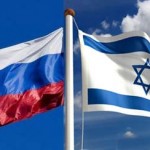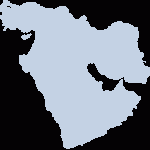 Israel Votes on "Eased" Blockade
Israel Votes on "Eased" Blockade: Senior cabinet ministers on Sunday
approved steps toward easing Israel's blockade.
The Prime Minister's Office said that Israel would release "as soon as possible" a detailed list of goods that would not be allowed into the Gaza Strip. PM Benjamin Netanyahu said, "Israel seeks to keep out of Gaza weapons and material that Hamas uses to prepare and carry out terror and rocket attacks toward Israel and its civilians. All other goods will be allowed into Gaza."
Middle East Inside Line: US & EU Back Israel on “Eased Blockade”, Lebanon-Israeli Crisis?, Egypt’s Manoeuvre, and More…
Hamas called the Israeli step a "
deception" and said that the blockade must be lifted entirely.
Israel's Army Radio quotes Mahmoud Zahar as saying that
Hamas would never change its policy of 'resistance' against Israel. In an interview with
Al Quds, Zahar then allegedly targeted the Palestinian Authority in Ramallah and said that "rocket launches should happen in the West Bank as well [as Gaza]" He blamed the Palestinian Authority leader Mahmoud Abbas of "fighting the 'resistance'" and added that it was not Hamas that took over Gaza, but in fact President Mahmoud Abbas's Fatah movement that had seized the power in the West Bank, aided by the Israeli "occupation".
Israel's Internal Probe Concludes: Israel Radio reported Sunday that
a new investigation into the raid by the internal Israel Navy probe concluded. According to the report, during the mass offensive against Israeli soldiers, the commando unit was inadequately prepared, lacked sufficient intelligence, and was ill-used in its approach to the Turkish-flagged ship.
A commander involved in the attack said, "I still awake at three A.M. every morning and ask myself: Damn it, how did we not know more?",
Haaretz reports.
Lebanon's Flotilla Not Moving: The Gaza-bound Lebanese flotilla is still in Lebanon, and it
may not be allowed to depart since Lebanese law forbids a departing vessel to dock in a port under Israeli occupation. Sources also told the Arab daily
Al-Hayat that organizers failed to appeal to the government for the necessary permits, authorizing their departure as well as their travel. However, it is still possible that organizers will submit a travel plan to a different destination, perhaps Cyprus, and then change course during the course of their voyage.
US-Israeli Meeting: Washington also welcomed Israel's recent decision to ease the blockade on Gaza. "We believe that the implementation of the policy announced by the government of Israel today should improve life for the people of Gaza, and we will continue to support that effort going forward," White House press secretary Robert Gibbs said in a statement.
President Obama and Benjamin Netanyahu's meeting in Washington, cancelled on 1 June during the flotilla crisis, has been re-scheduled for
6 July. Discussion is expected on two main issues., There is the U.S. position in the Non-Proliferation Treaty Review Conference, which called for an international conference in 2012 for a Middle East free of nuclear weapons, called on Israel to sign the Nuclear Non-Proliferation Treaty and open its nuclear installations to international inspection, and called for the appointment of a special UN envoy on nuclear weapons in the Middle East.
Then there is the "progress" in proximity talks with the West Bank. US Mideast special envoy George Mitchell completed his four rounds of talks and the two sides are ready to talk again. It is uncertain, however, how the Israel's flotilla crisis and, more broadly, the issue of Gaza will affect the course of the talks.
Speaking at a Jewish Agency conference on Sunday, Israeli President Shimon Peres said that
Israel's security remains a top priority for the Americans. Watch for signals as to whether that is the case before Obama and Netanyahu shake hands two weeks from now.
 Wednesday, June 30, 2010 at 8:12
Wednesday, June 30, 2010 at 8:12  Israeli-Russian relations continue to run along a knife edge. President Shimon Peres used a reception with Estonian President Toomas Hendrik Ilves on Monday to praise Russia for adopting a more aggressive policy on Iran. He praised Russian President Dmitry Medvedev, speaking at the G-20 meeting in Toronto, for noting the “worrying” US assessments that Iran could build a nuclear weapon within two years.
Israeli-Russian relations continue to run along a knife edge. President Shimon Peres used a reception with Estonian President Toomas Hendrik Ilves on Monday to praise Russia for adopting a more aggressive policy on Iran. He praised Russian President Dmitry Medvedev, speaking at the G-20 meeting in Toronto, for noting the “worrying” US assessments that Iran could build a nuclear weapon within two years.



